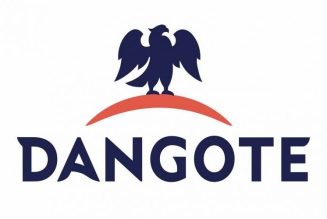Economy
Kenya’s Sh2,800 per second betting market rivals NSE
Wednesday August 30 2023

Kenyans staked a record Sh88.5 billion through online bets in the full year to June 2023. FILE PHOTO | POOL
Kenyans staked a record Sh88.5 billion through online bets in the full year to June 2023, defying a heavy crackdown on the sector and punitive taxes introduced in the period.
The bets handed the Kenya Revenue Authority (KRA) a major windfall after it collected Sh6.64 billion in excise taxes alone. The amount was paid by gaming firms from the new 7.5 percent tax on waged amounts.
This means Kenyans placed Sh242 million daily on bets, Sh10.1 million hourly, Sh168,333 every minute or Sh2,806 every second — underscoring how gambling has transformed from a pass time to a full-time economic activity.
Were Kenya’s gambling industry a marketplace, it would rival the Nairobi Securities Exchange (NSE) whose equity turnover last year stood at Sh94.2 billion.
By themselves, punters would be able to fully fund the budgets for manufacturing and industrialisation, social protection, governance and justice and sports, culture, recreation and tourism industry and keep some change.
The rise of betting defied a heavy crackdown on existing gaming firms and stiff taxation year after year.
In 2019, for instance, the Interior Ministry under the then Cabinet Secretary Fred Matiang’i clamped down on gaming firms on allegations of criminal activity, including money laundering and tax evasion, in a battle that nearly wiped out the sector.
The industry has since soared back with thousands of devoted followers itching to get rich quickly. The gambling craze is also turning into an addiction, raising concerns among health experts.
“Excessive gambling is a defined mental disorder. This mental disorder is known as ludomania or problematic gambling.
This disorder incapacitates its survivors in such a great manner that one is not able to stop the gambling behaviour despite its many risks,” Silas Kiriinya, a consultant psychologist and the CEO of Amazon Counselling Centre, said.
Read: KRA starts integrating other 87 betting firms
“The behaviour begins as just a way of entertainment and to pass time and get rich. Eventually, a habit is created and before one takes notice, they are severely addicted to gambling already. This explains why one is not able to stop the behaviour of gambling despite losing many times.”
Comorbidity, a pre-existing mental disorder, can also cast one into pathological gambling.
According to Dr Kiriinya, Kenya has rapidly become a betting nation with the number of those who are seeking professional help increasing by the day.
Kenya did not permit gambling until 1952, when curiously, the then Christian Council of Kenya asked for the decriminalisation of the practice, arguing it would result in the tighter regulation of what it termed a vice, abhorrent and an activity that went against the protestant work ethic.
The introduction of the Internet and mobile phones in the 1990s, however, created new opportunities for gambling, including the entry of foreign online betting companies.
The Kenya FinAccess Household Survey of 2021 found the share of adults that gambled increased from 1.9 percent in 2019 to 13.9 percent in 2021, with males in urban areas aged between 18 and 36 years being more likely to bet.
The majority of gamblers had a level of education beyond secondary school while youth aged 18 to 25 were more likely to bet than persons in any other age group.
One in 10 Kenyans or 11.2 percent of adults engaged in the activity, seeing betting as a reliable source of income albeit a decline from 22.7 percent in 2019.
Data from the Betting Control and Licensing Board (BCLB) show that bookmakers made revenues of Sh16.3 billion in the year ended June 2022 as casinos booked Sh6.4 billion, with the conservative figures representing gross gaming revenues after factoring in winnings.
Kenya already has some of the highest tax rates on betting with the applicable tax rates seemingly rising every year.
Gaming firms are, for instance, required to withhold 20 percent of the winnings paid out to punters.
Equally, the taxman collects a 15 percent tax charged on the firms’ gross gaming revenues.
The taxes are added to annual licence fees and compliance fees, which vary depending on the nature of the gambling operation or size.
Gaming firms are still required to pay income tax at the standard rate of 16 percent.
The KRA recently connected its system to those of gaming firms and now requires businesses to remit excise duty overnight.
While increases in taxes on the classic sin industries, including tobacco and alcohol, have proved to be demand-destructive over time, taxes on betting are yet to prove to be a deterrent to either punters or bookmakers.
The unofficial proof of inelasticity has encouraged the government to load more taxes each year on betting.
“Betting is inelastic while being as addictive as alcohol, cigarettes or luxury goods. The industry has been a quick fix for the exchequer’s revenue problem where new taxes will always be directed to the sector especially when the economy is struggling. However, one would think that if a tax goes beyond a certain limit, it may be untenable for some participants in the industry,” said Michael Mburugu, a regional tax partner at consultancy PKF Eastern Africa.
Read: Betting firms set to remit taxes via M-Pesa under new system
Mr Mburugu argued the betting craze in Kenya was largely peculiar to standards set in advanced economies where punters are largely well-off.
“I would call it irresponsible betting where someone earning Sh200 a day will bet Sh100 hoping to make a lot more. I do question a lot whether betting makes for a real economic activity. In advanced economies, betting is the preserve of persons with excess liquidity,” he added.
After years of taking a piece of the pie, the government now seemingly desires to own the whole cake having proposed to establish a National Lottery.
The National Lottery is expected to generate Sh34.52 billion in taxes, including corporation taxes in the first three years, with the bulk of the new gambling taxes expected to be channelled to the Sports Fund.









